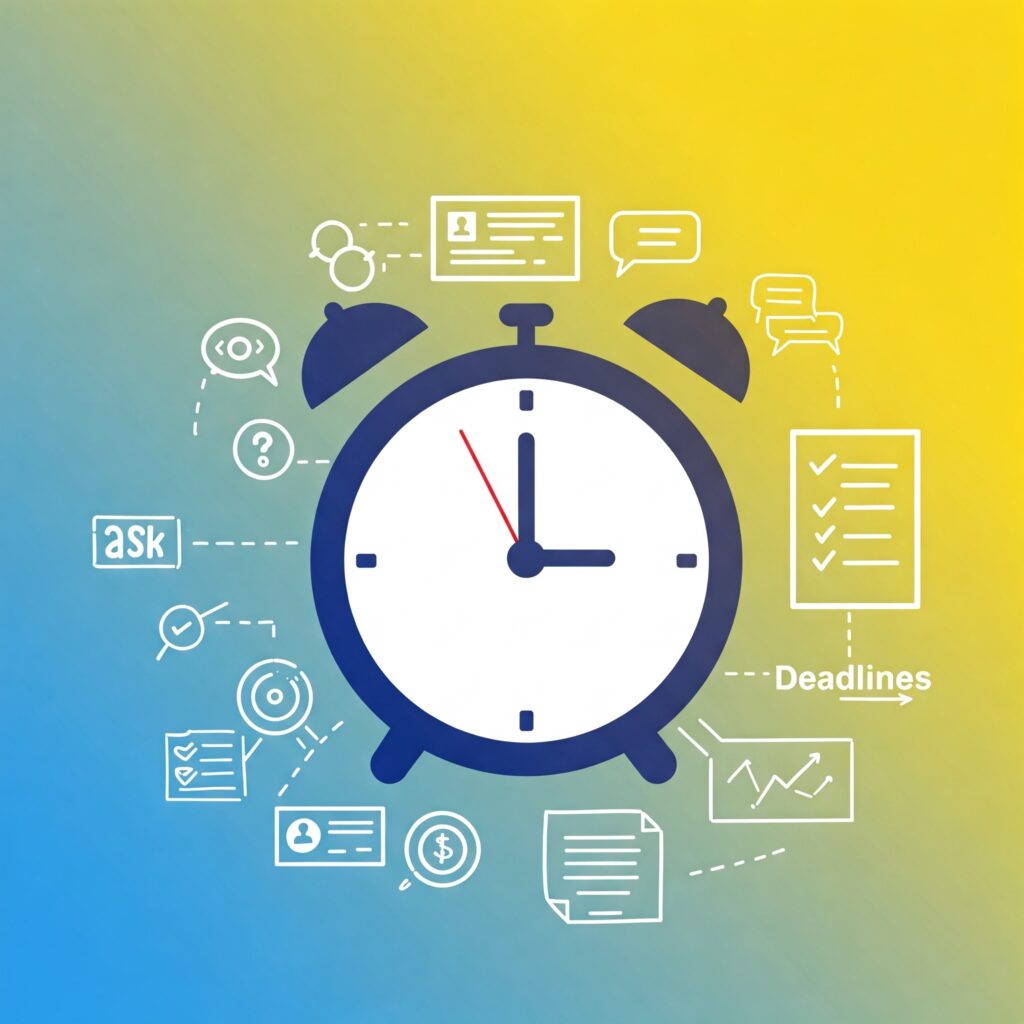1. Complete High Priority Tasks First
It is important to make sure tasks with the soonest due dates and deadlines are placed at the top of your priority list. If a task is due next week, you should always start on that task before beginning one that isn’t due until weeks later. Tasks that are due sooner have less wiggle room for time wasting. If you delay these tasks, you risk running out of time, which leads to stress, rushed work, or even missing the deadline. Prioritizing these will make sure you meet deadlines, thus decreasing your overall stress level.
2. Eliminate Distractions
When working towards a task, eliminating distractions can make a difference in the amount of time it takes to complete a project as well as the quality of that project. A 15-minute task can easily stretch into 45 minutes if you’re constantly checking your phone, emails, or notifications. When you’re distracted, you’re more likely to make mistakes or produce sloppy work, which can ultimately lead to you spending more time fixing things later. Overall, minimizing distractions helps you work faster, smarter, and with less frustration.
3. Set Goals
Setting realistic goals when completing a task or project can help you to stay on track. Having small milestones to work toward can provide motivation. Working toward something specific gives you a reason to show up and stay consistent, even when you’re not feeling it. Goals give you a way to track how far you’ve come and how far you still need to go, which helps with planning and adjusting your time. Setting goals allows you to use your time more intentionally, thus leading to more efficient time management.
4. Schedule Appropriately
Overbooking could lead to not being able to complete high-priority tasks first, eliminating distractions, or meeting set goals, all of which are stated as important in the document. For example, if you have a deadline for the end of the day, but you have back-to-back meetings scheduled throughout the day, it is likely that you will not be able to focus on your deadline, because you will be busy with the meetings on your calendar. This could lead to rushed work or a missed deadline.
5. Budget Your Time
Keep an idea of how much time you have available, not only for the project or task you are working on, but for your other day-to-day tasks as well. If you tell yourself you have a full day to complete a project, but you forgot about your usual scheduled routine tasks for that day, you could end up misbudgeting your time, as you now have less time than you had originally planned for your project.

6. Take Breaks
Allow time for yourself to rest or get some fresh air, or have a snack in between reaching goals. This will allow you to step away from the project at an appropriate time and to come back refreshed in order to meet the next goal. This can also help to minimize stress when completing a project, which will allow your mind to be clear while you work.
7. Set Reminders
Reminders serve to give you a heads-up before things are due, so you’re not scrambling at the last minute or forgetting important deadlines. In team projects, shared reminders help everyone remember meetings, check-ins, or handoffs — so nothing falls through the cracks. Reminders can also help reduce stress, as you won’t have to constantly keep track of all deadlines in your head. When you trust your reminder system, your brain can relax and focus on doing the work, not tracking it.
8. Establish a Routine
When you have a routine, you don’t waste time figuring out what to do next — you just do it. That saves mental energy for the important stuff. When your routine includes blocks of time for focused work, breaks, and planning, you’re more likely to use your allotted time to its full potential. Overall, a solid routine gives your day a natural rhythm, so you’re less likely to drift, procrastinate, or forget tasks.
9. Keep Things Organized
Clutter — physical or mental — makes your workload feel bigger than it is. Being organized helps you break things down and feel more in control. Organization can help you to plan ahead. When everything is laid out clearly, you can plan your day or week more effectively, instead of reacting to whatever pops up.
10. Use a Calendar
A calendar gives you a big-picture view of your day, week, or month. You can see at a glance how busy you are, spot open time blocks, and avoid overbooking yourself. With reminders and alerts, a digital calendar keeps you from forgetting meetings, deadlines, or important tasks.
These time management tools can help you maximize your productivity while minimizing stress. The tools can help you to use your time effectively, instead of watching it pass.
If you’re spending too much time on your marketing and not seeing the results you want, we can help. Contact The Kool Source today to schedule your free consultation.
- Understanding the Online Marketing Funnel - July 23, 2025
- 5 Tips for Effective Email Marketing - June 24, 2025
- 6 Tips for a Successful Meeting Presentation - May 9, 2025


0 Comments